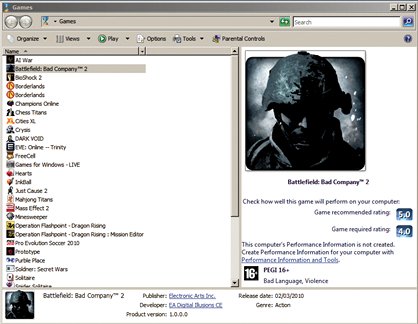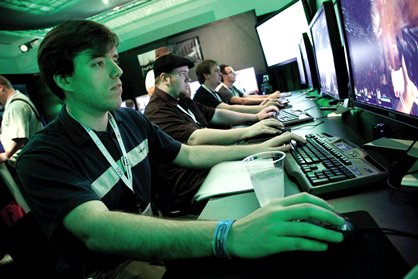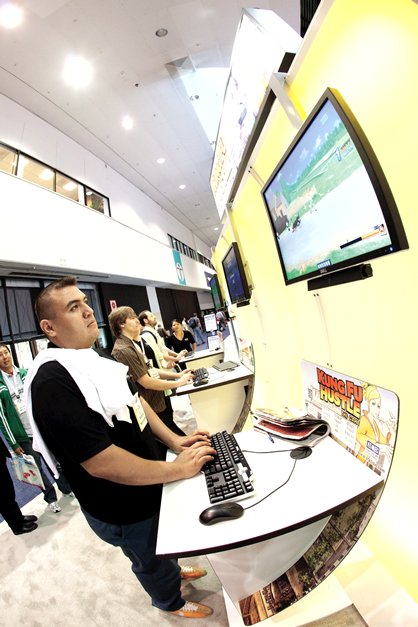How to fix what's wrong with PC gaming
The platform is powerful but flawed - here are 12 things that require a reboot
In many ways, the PC is the most important gaming platform on the planet. It’s the platform almost everybody has in their home. It defines videogames by pushing the technology forward more rapidly than consoles. Yet it’s also riddled with hurdles that get in the way of its greatness. Unless changes are made, we may see it becoming increasingly marginalized within the gaming industry. Here’s how to make it the baddest gaming platform around once again.

I’m Microsoft. I’m developing Windows 8. I’m glad you liked Windows 7, but I still don’t feel I’ve done enough for gamers. So I’m making a new rule. AMD, Nvidia, Intel, Corsair, all you guys: the only way I will ever allow you to describe any of your products as ‘Windows 8 Ready’ is if its full name contains only one number. Its User Experience Rating.

This rough measure of a component’s performance was one of the few positive innovations in my horrible mistake Windows Vista, for which I am profoundly sorry. I’ve improved it since, and made sure it’s a fair equivalent of the needs of the most demanding applications and games around. I’ll continue to tweak it slightly as software requirements change, but I’ll never reset the numbers: a 7 will always be better than a 6, even in 2012 when we’re all running 34s.
The system requirements you find on the back of game boxes from now on, until game boxes are antiques, will read: Minimum: 5. Recommended: 7. When you buy a new PC, it will be called a Dell 10, a Mesh 11, a Cyberpower 10.5. I’m holding all you full-systems guys to the same rule: you can’t even ship your machines with my OS if they have a single goddamn number that isn’t telling the customer exactly how powerful it is. Call it the Dominator if you must, call it the Flangemangler for all I care, call it the Ultro-Megalicious Pixel Crusher if you think it’s worth it. But every gamer who wants to buy a graphics card, a system or a game will be able to look at one number and know if it’ll do the job.
Also, I’ve just decided to rescind Games for Windows Live and issue a public apology for Steve Ballmer’s on-stage dancing.
There comes a time in every console cycle where the PC versions of games begin to look, sound and feel 100 per cent better than their console equivalents. That’s when the PC shines. For this generation, that time has already passed – there has been no game yet released that looks as good as Crysis.

In the future, StarCraft II will be one of the biggest online games ever. Crysis 2 will look its best on PC. APB is going to be the silliest, most chaotic city we’ve yet to play in. And Diablo III is going to deliver RPG-powered crack to half of the planet. But we’re not doing much to shout about what’s coming.
Sign up to the GamesRadar+ Newsletter
Weekly digests, tales from the communities you love, and more

This summer at the E3 conference, Microsoft, Sony and Nintendo will host giant press events where they’ll show off their next big things. Millions of dollars are spent on these jollies. But at events like E3, the very centerpiece of the gaming calendar, the PC is all but forgotten.

The big E3 shows aren’t just about showing off your games to the public. They’re about ensuring that publishers, investors, analysts and suits understand the business case for the platform. Right now, the PC doesn’t have anyone making the business case for it at the world’s biggest gaming event. That needs to change. We need one of our platform guardians, like Microsoft, Valve, Blizzard, Dell, Nvidia, or ATi to launch their own E3 press conference, where the best of PC gaming can be launched and shown off to the world.


